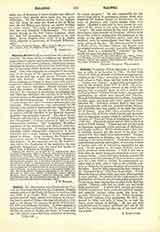

Kalands Brethren (KALANDBRÜDER, FRATRES CALENDARII), the name given to religious and charitable associations of priests and laymen especially numerous in Northern and Central Germany, which held regular meetings for religious edification and instruction, and also to encourage works of charity and prayers for the dead. They were originally an extension of the meetings of the clergy of the separate deaneries usually held on the first day of each month (Kalendoe, hence their title Kaland). After the thirteenth century these meetings developed in many cases into special, organized societies to which both priests and the laity, men and women, belonged. Special statutes regulated the conduct of the society, its reunions, the duties of the directors in promoting the religious life and Christian discipline, the services to be held, the administration of the general funds, and their application to charitable purposes. A dean was at the head of each association, and a treasurer administered the revenues. The associations were encouraged by the bishops, who assigned them particular churches or at least special altars for Divine Service. The offering of prayers and the Sacrifice of the Mass for deceased members was especially fostered. The oldest known Kaland confraternity is that of Ottberg near Hochster (Westphalia), of whose existence in 1226 we have documentary evidence. The “Calendarii” flourished especially in the fourteenth and fifteenth centuries, but later decayed. A banquet was introduced at the meetings, which subsequently degenerated in many instances into a revel, leading in certain neighborhoods to abuses. From Germany the Kaland confraternities spread to Denmark, Norway, Hungary, and France. In the sixteenth century the Reformation led to the dissolution of the majority; the rest gradually disappeared, only one being now known to exist, that of Munster in Westphalia.
J. P. KIRSCH

